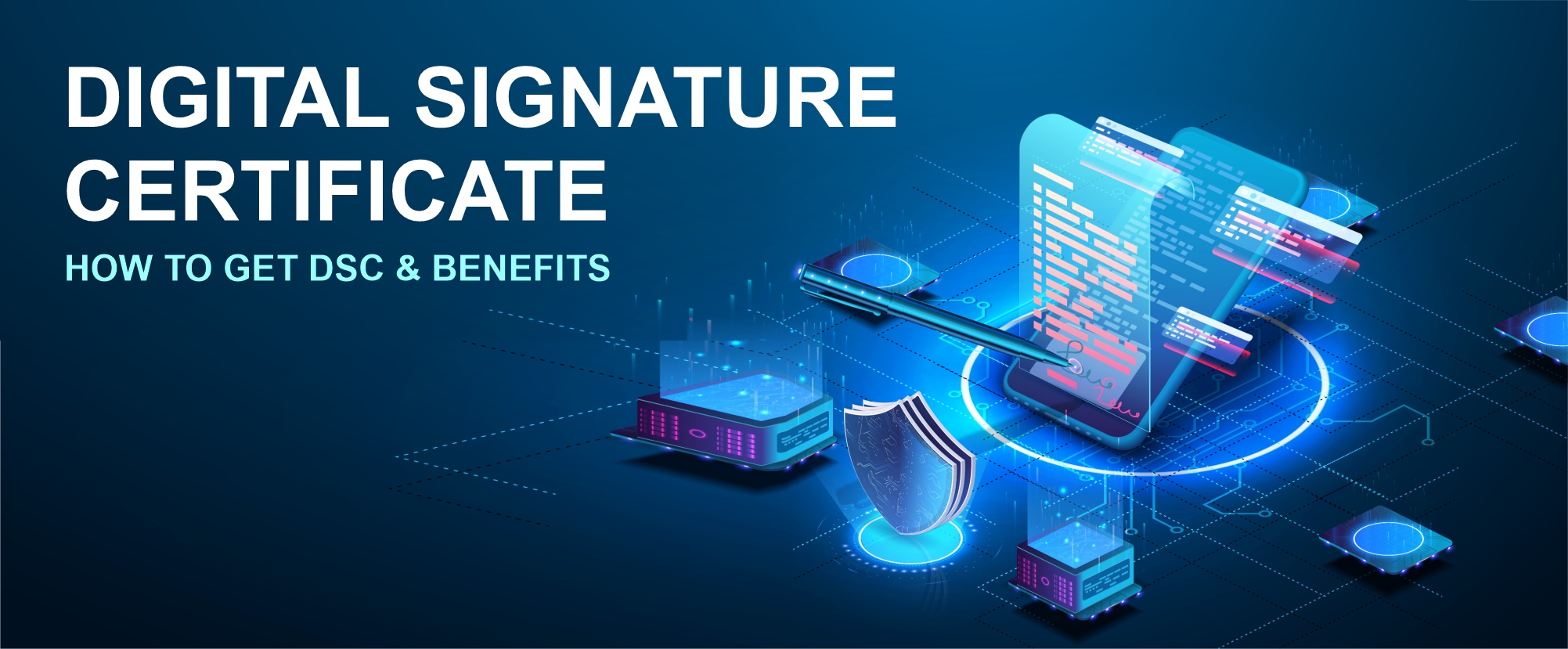How Digital Signature Certificates Can Improve Your Business’s Security

In the digital age, businesses increasingly rely on electronic transactions and communication. Digital Signature Certificates (DSCs) play a vital role in ensuring security, authenticity, and legal compliance. It will provide an in-depth understanding of DSCs, why businesses need them, and a step-by-step guide on applying for a Digital Signature Certificate.

The corporate affairs ministry’s DSC FAQs state that Class 2 DSC must check a person’s information against a reliable, previously confirmed database. In contrast, Class 3 DSCs need a person to appear before a Registration Authority (RA) to establish their identity. Class 1 DSCs merely confirm the person’s name and email address. However, several sources state that Class 2 DSCs were stopped in 2021. A DSC with one or two years of validity may be issued by certifying agencies.
DSCs are widely used in various applications, including the electronic filing of income. This refers to filing tax returns and Goods and Services Tax (GST) returns. And other related transactions include the digital signature of documents during the incorporation of companies, the submission of electronic bids and participation in online tendering processes, online banking, and other financial activities.
A Digital Signature Certificate (DSC) is an electronic document that authenticates the identity of an individual or an organization electronically. It is a digital equivalent of a physical signature and ensures the integrity and authenticity of electronic documents and transactions. DSCs are issued by Certifying Authorities (CAs) and are typically used for online transactions, e-filing of documents, secure email communication, and other activities that require authentication and non-repudiation.

Businesses need a Digital Signature Certificate for several reasons:
- Legal compliance: In many countries, including India, digital signatures are legally recognized and required for certain transactions and filings. For instance, DSCs are used in India for e-filing income tax returns, GST filings, company registrations, and other legal and regulatory compliance requirements.
- Security and authenticity: Digital signatures provide higher security and authenticity than traditional physical signatures. They ensure the document has not been tampered with since it was signed and can be used to verify the signer’s identity.
- Efficiency and convenience: Using digital signatures eliminates the need for physical paperwork, printing, scanning, and couriering documents. It simplifies and speeds up the process of signing and exchanging documents, reducing costs and improving efficiency.

To apply for a Digital Signature Certificate, you need to follow these general steps:
- Choose a Certifying Authority (CA): Select a trusted CA authorized to issue DSCs in your country or region. CAs are accredited entities that follow specific guidelines and regulations for issuing digital signatures.
2.Gather necessary documents: Prepare the required documents such as identity proof, address proof, and other supporting documents per the CA’s requirements. These may include a PAN card, passport, driver’s license, utility bills, etc.
- To apply, please complete the designated application form by filling it out thoroughly. They are provided by the CA, providing accurate details and ensuring that all necessary fields are completed correctly.
- Identity verification: You may be required to undergo an identity verification process, which can vary depending on the CA. This may involve in-person verification, submission of documents, or online verification methods.
- Pay the fees: Digital Signature Certificates are issued for a fee, which varies depending on the type and validity period of the certificate. Pay the required payments as specified by the CA.
- Certificate issuance: Once your application is approved and the necessary verification is completed, the CA will issue your Digital Signature Certificate. This certificate is usually stored on a cryptographic USB token or smart card for secure usage.

Here’s how to apply for the digital signature certificate (DSC) online:
- Visit any of the licensed certifying authority’s websites. The list is available at http://www.cca.gov.in/licensed_ca.html. 
- Look for the Digital Certification Services section and select the one applicable to ‘the organization.’
- Download the registration form, fill in the required information—Class of DSC as Class 3, applicant name and contact information, address, GST information, identification and address proof—and sign the paper.
- A demand draught (DD) or check must be made out in the name of the regional certifying body.
- To the authorities, enclose the application and a check or money order. Within five days, a DSC is issued.
- The cost for DSC varies from around Rs 300 to Rs 2,000 with different certifying authorities and based on the validity period of one year and two years.
Digital Signature Certificates are necessary for businesses operating in the digital landscape. They provide security, authenticity, and legal compliance for electronic transactions. By understanding what DSCs are, why companies need them, and how to apply for them, organizations can ensure the integrity of their electronic documents and transactions while improving efficiency and convenience in their operations.

The above article is a general guide and should not substitute for professional advice. Procedures and requirements may vary based on your country or region. Always consult the guidelines provided by the relevant Certifying Authority or seek professional assistance for accurate and up-to-date information. It’s important to note that the specific process and requirements for obtaining a Digital Signature Certificate may vary depending on your country or region. Therefore, it is recommended to consult the guidelines and procedures provided by the relevant Certifying Authority or seek professional advice for accurate and up-to-date information.





